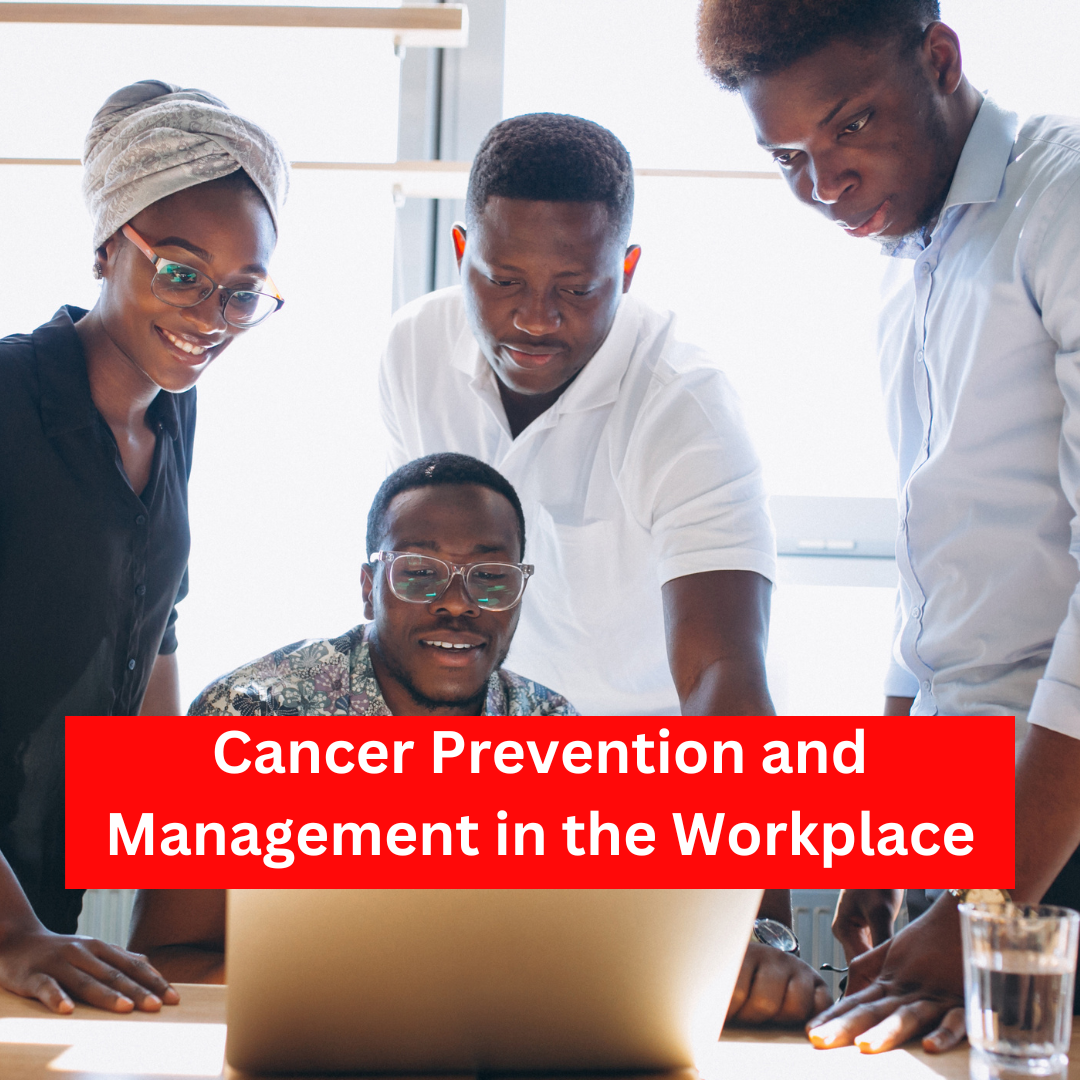Cancer is a global health challenge with significant impacts on individuals and communities. According to “ProjectPinkBlue”, a cancer awareness initiative in Nigeria, there are over 72,000 deaths per annum that are attributed to cancer, with 102,000 new cancer cases reported every year. As this is a growing issue, let us provide some insights into cancer, its prevention and how to properly manage it, particularly in the context of employment.
Cancer Prevention
Most experts agree on one thing when it comes to cancer, and it is that preventing cancer involves lifestyle choices that can help reduce the risk of developing the disease. This is not an exhaustive list but here are some general tips that can help prevent the disease.
- Avoid Tobacco: Smoking and chewing tobacco have been linked to various types of cancer. Avoiding tobacco or deciding to quit is an important step in cancer prevention.
- Healthy Diet: Base your diet on fruits, vegetables, whole grains, and beans. Limit high-calorie foods, refined sugars, and fat from animal sources. Limit processed meats and alcohol.
- Physical Activity: Regular physical activity can help maintain a healthy weight, which might lower the risk of various types of cancer.
Cancer and Employment
As regards employment and working with cancer, a cancer diagnosis can significantly impact an individual’s work life, mentally and physically. However, with the right support and resources, it is possible to balance cancer treatment and work responsibilities.
Support for employees with cancer can be challenging to navigate because cancer is unique for each survivor. The term “cancer” actually refers to more than 100 distinct diseases, each of which has varying symptoms, treatments and timelines for recovery. No two patients face the same experience, and organizations differ widely in their responses to the condition.
With all that said, there are three crucial areas of support that employers should strive to offer to workers who have cancer:
- Determining which treatment is most appropriate and how it can be provided.
- Understanding health care, disability and other employer-provided benefits.
- Dealing with the emotional impact of the disease.
Support for Employees Living with Cancer
According to the American National Business Group on Health and the National Comprehensive Care Network, employer-provided cancer benefits should include:
- A medical benefit.
- A pharmacy plan.
- Clinical support and condition management.
- Family medical leave.
- An employee assistance program.
- Health improvement programs.
- Open Communication
- Training for Managers
- Update Policies.
- Educate fellow Employees
While Nigeria may not have specific laws like the Americans with Disabilities Act (ADA), employers should strive to provide a supportive environment for employees battling cancer. This could include making reasonable accommodations for the employee’s condition, such as flexible work hours or the option to work from home. Open communication between the employee and employer is key to finding solutions that work for both parties.
Conclusion
Cancer is a significant health challenge in Nigeria, but with preventive measures and supportive workplaces, individuals can lead fulfilling lives while managing the disease.








No Comments